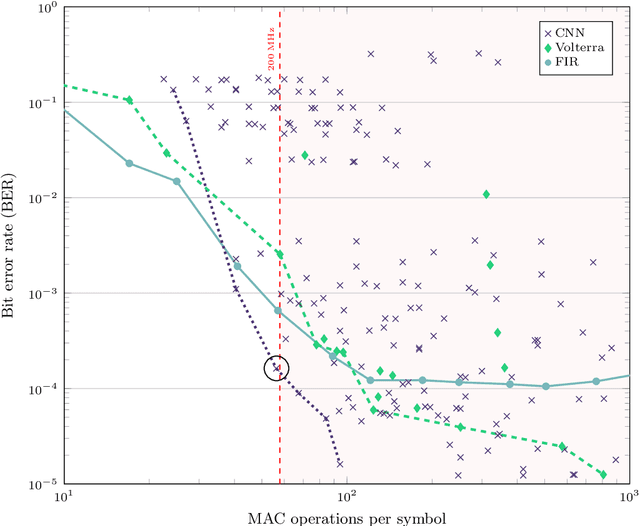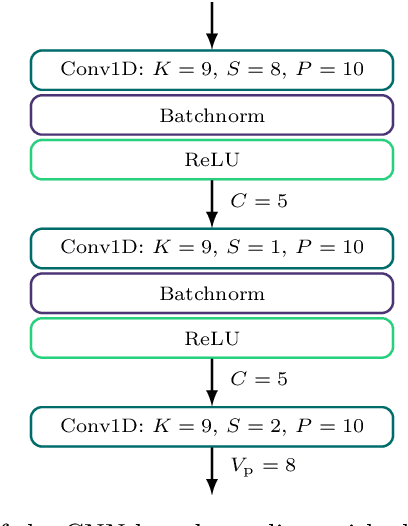CNN-Based Equalization for Communications: Achieving Gigabit Throughput with a Flexible FPGA Hardware Architecture
Paper and Code
Apr 22, 2024



To satisfy the growing throughput demand of data-intensive applications, the performance of optical communication systems increased dramatically in recent years. With higher throughput, more advanced equalizers are crucial, to compensate for impairments caused by inter-symbol interference (ISI). The latest research shows that artificial neural network (ANN)-based equalizers are promising candidates to replace traditional algorithms for high-throughput communications. On the other hand, not only throughput but also flexibility is a main objective of beyond-5G and 6G communication systems. A platform that is able to satisfy the strict throughput and flexibility requirements of modern communication systems are field programmable gate arrays (FPGAs). Thus, in this work, we present a high-performance FPGA implementation of an ANN-based equalizer, which meets the throughput requirements of modern optical communication systems. Further, our architecture is highly flexible since it includes a variable degree of parallelism (DOP) and therefore can also be applied to low-cost or low-power applications which is demonstrated for a magnetic recording channel. The implementation is based on a cross-layer design approach featuring optimizations from the algorithm down to the hardware architecture, including a detailed quantization analysis. Moreover, we present a framework to reduce the latency of the ANN-based equalizer under given throughput constraints. As a result, the bit error ratio (BER) of our equalizer for the optical fiber channel is around four times lower than that of a conventional one, while the corresponding FPGA implementation achieves a throughput of more than 40 GBd, outperforming a high-performance graphics processing unit (GPU) by three orders of magnitude for a similar batch size.
 Add to Chrome
Add to Chrome Add to Firefox
Add to Firefox Add to Edge
Add to Edge